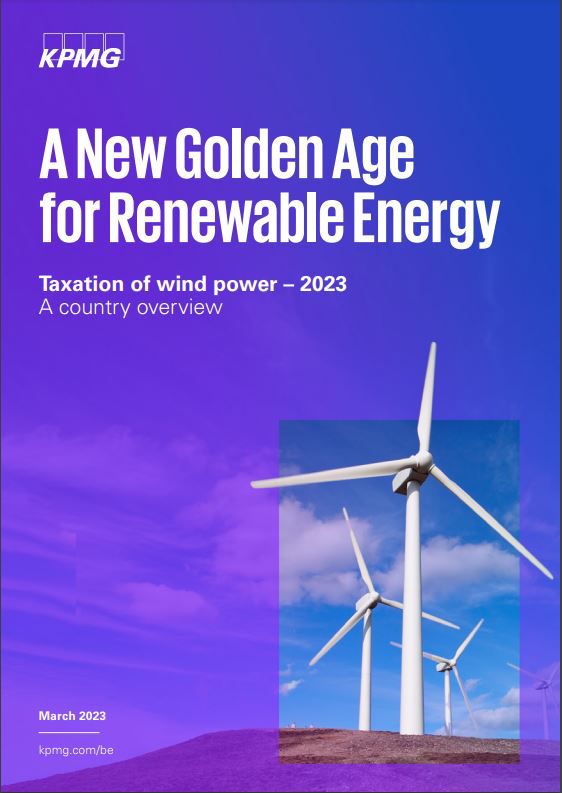We live in a world, where achieving net zero emissions is one of the most important social, political and economic goals for nations and businesses.
KPMG's publication, Taxation of Wind Power, provides an overview of the taxation in 40 countries at the forefront of wind power investment and use. All major wind power producers are included, as well as a few countries that have the potential to become large producers through investments in areas such as offshore wind.
Wind power production is a fast-growing business both onshore and offshore. It is expected that production will continue to grow in the future, and increase its share of the global energy mix, as countries all over the world seek to reduce emissions from fossil energy production.
This report presents a brief country overview of taxation for both onshore and offshore wind power production.
In most countries, wind power production is subject to ordinary Corporate Income Tax (CIT) varying from 12.5% (Ireland) to 40% (India). Most countries levy CIT on wind power production between 20% - 25%.
In Greece, there are no special tax regimes for wind parks. Companies that operate wind turbines are subject to Corporate Income Tax (“CIT”) under the general standard tax regime. According to the general provisions of Greek tax legislation, all types of income of legal entities, including capital gains, are considered income from the carrying out of business activities and they are taxed after the deduction of qualifying business expenses, depreciation, as well as tax losses carried forward from previous years and withholding taxes that have not exhausted their final tax liability. Various incentives, including tax incentives (such as stabilization of the tax rate, tax exemption, acceleration of the tax depreciations of the assets etc.) are provided for the category of offshore wind parks in accordance with the provisions of the Greek Law for Strategic Investments.
Download the full report above to learn more about Taxation of Wind Power in Greece.



